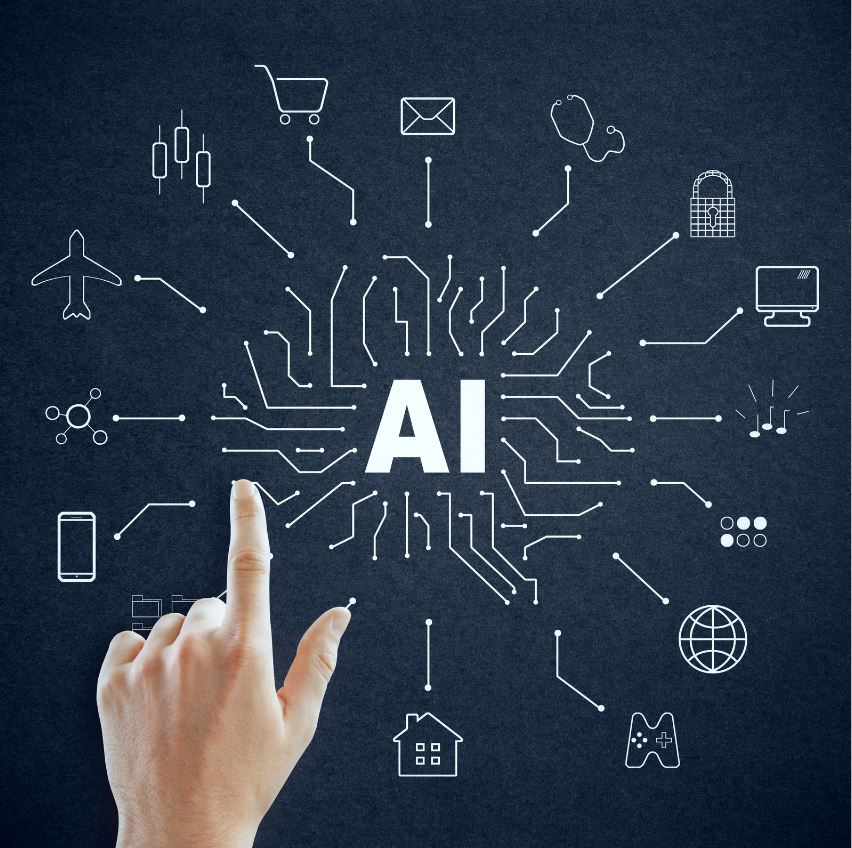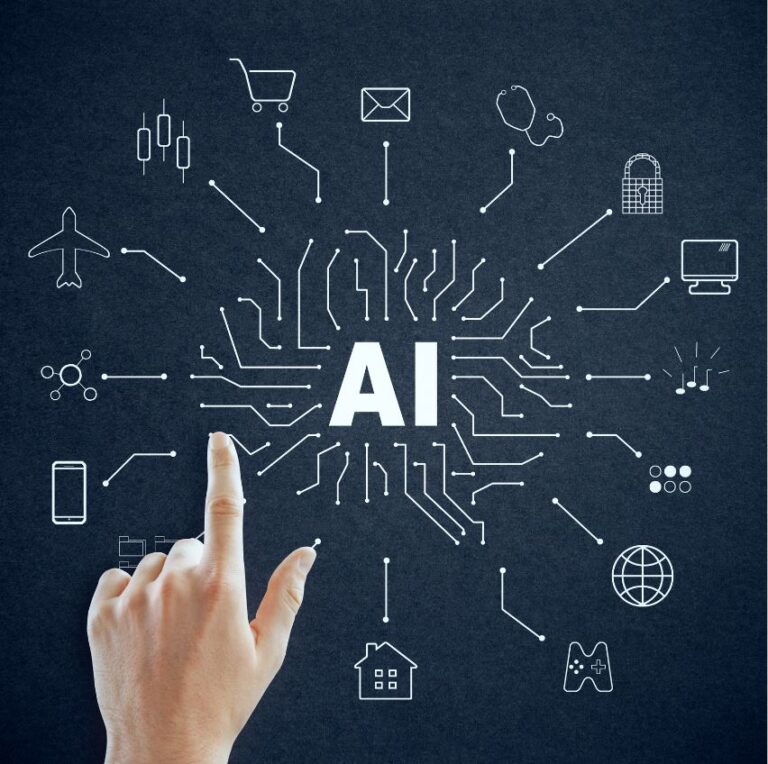Introduction
In today’s fast-paced business environment, AI is reinventing market reserch. Basically, understanding that customer feedback and staying ahead of the competition is paramount. Market research serves as the backbone of effective decision-making, guiding companies in crafting winning strategies. However, the traditional methods of market research often struggle to keep up with the evolving demands of businesses.
This is where artificial intelligence (AI) steps in, acting as a game-changing marketing assistant. By harnessing the power of AI, companies can unlock valuable insights, delighting customers and enhancing their product offerings.
The role of artificial intelligence (AI) in transforming the industry
Artificial intelligence has permeated various industries, and market research is no exception. With AI, companies can conduct customer discovery and obtain product feedback in ways that were previously unimaginable. It enables businesses to delve deeper into customer sentiments, preferences, and behaviors, facilitating more targeted and personalized marketing efforts.
AI-powered algorithms can analyze vast amounts of data swiftly, unveiling valuable patterns and trends that were once buried beneath the surface. This empowers organizations to make data-driven decisions, optimize their strategies, and create a positive impact on their bottom line.
AI-driven advancements will revolutionize market research methods and outcomes
As AI continues to advance, it promises to reinvent the market research industry. Companies leveraging AI-powered marketing assistants will achieve the following:
- Gain a comprehensive understanding of customer needs and desires.
- Collect real-time and accurate product feedback, providing invaluable insights for product improvement.
- Identify new market opportunities and effectively position products to meet evolving demands.
- Streamline research processes, saving time and resources while increasing efficiency.
- Stay competitive in a rapidly evolving business landscape

The Current State of Market Research
traditional market research approaches and limitations
Traditional market research approaches have relied heavily on manual processes, which can be time-consuming and resource-intensive. Some limitations of these approaches include having to chose between qualitative and quantitative reserach as 2 different choice points:
| Qualitative | Quantitative |
|---|---|
| Small sample size | large sample size |
| Detailed responses | Structured responses |
| Exploratory | generalizers |
Challenges faced by market researchers in data collection, analysis, and interpretation
Market researchers often encounter various challenges when conducting qualitative research and interpreting data while Quantitative surveys are too rigid and the level of insights is smaller.
A summary of the main challenges and solutions could be group in:
A. Main Challenges
- Managing and organizing large volumes of data from disparate sources.
- Extracting meaningful insights from unstructured data, such as social media posts and customer reviews.
- Ensuring data accuracy and minimizing errors in data entry and transcription.
- Dealing with limited resources and budget constraints for comprehensive research initiatives.
- Identifying and reaching target audiences efficiently to gather representative data.
B. Potential Solutions
- Efficient data collection methods that minimize respondent burden and improve response rates.
- Advanced analytics tools capable of processing vast amounts of data quickly and accurately.
- Real-time monitoring of customer sentiments and feedback to enable timely decision-making.
- Automated sentiment analysis and emotion detection to uncover nuanced customer responses.
- Integration of multiple data sources for a holistic and comprehensive understanding of customer preferences.
- Customizable dashboards and visualizations to simplify data interpretation and communication.

The Rise of AI in Market Research
How AI technologies are being integrated into market research practices
AI technologies, acting as marketing assistants, are revolutionizing market research. They enable businesses to delve deeper into customer discovery and obtain valuable product feedback through various means, such as:
- Automated chatbots and virtual assistants that engage with customers and gather real-time insights. Feel free to check the most relevant chatbots today in the market:
- Natural language processing (NLP) algorithms that analyze customer sentiments from social media posts, reviews, and customer support interactions.
- Machine learning models that provide predictive analytics and identify patterns in large datasets. More information can be found in this educational post about machine learning.
Benefits of AI in enhancing data collection efficiency and accuracy
By leveraging AI-powered marketing assistants, companies can achieve significant improvements in data collection through automated data collection processes to reduce manual effort, enabling researchers to focus on analysis and insights.
At the same time, AI algorithms can process and analyze vast amounts of data quickly, ensuring accuracy and reducing human errors. Real-time data collection capabilities will enable businesses to capture up-to-date customer sentiments and preferences.
AI plays a key role in automating repetitive tasks and freeing up researchers’ time. It serves as an invaluable assistant, that helps teams to focus on higher-value activities. Some tasks the AI can do are:
- Automated survey generation and distribution.
- Efficient data collection from large samples.
- Reduce the time and effort required for data preparation.
- High analysis capacity to provide actionable insights, allowing researchers to spend more time on strategic decisions.
AI-Powered Survey Design and Execution
AI is transforming the way data is collected enabling businesses to gather accurate and actionable insights from their target audience. Indeed, AI algorithms can suggest relevant survey questions based on customer profiles, ensuring higher engagement and response rates.
Dynamic survey experiences can be created with AI, tailoring questions based on respondent characteristics and previous answers. Automated survey optimization algorithms help eliminate bias and improve survey quality, resulting in more reliable and representative data.
Doing so, data quality improves significantly by:
| Enhancing survey response rates | Customization of survey experiences |
|---|---|
| AI-powered chatbots and virtual assistants guiding the survey process | presenting questions in a format preferred by each respondent. |
| Intelligent skip logic ensures that respondents only answer relevant questions | Consideration of respondent demographics |
| Sentiment analysis algorithms analyze open-ended responses | Adapt to customer behavior to increase engagement |
The Future of Market Research with AI
The integration of AI in market research is revolutionizing the industry, bringing forth a new era of customer insights and decision-making. AI, acting as a marketing assistant, offers numerous benefits, including improved survey design and execution, advanced analytics, and personalized experiences. It enhances data collection efficiency, accuracy, and response rates, leading to happier customers and better-informed business decisions.
Furthermore, AI-driven market research enables businesses to uncover valuable customer discoveries, gather detailed product feedback, and adapt to evolving market dynamics. However, ethical considerations and the human touch remain essential to ensure responsible data usage and contextual interpretation of AI-generated insights.
- AI-Powered Survey Design and Execution:
- AI algorithms suggest relevant survey questions based on customer profiles.
- Dynamic survey experiences tailored to individual respondents improve engagement.
- Automated survey optimization eliminates bias and improves data quality.
- Advanced Customer Insights:
- AI analyzes customer sentiments, preferences, and behavior for actionable insights.
- Case studies demonstrate AI’s ability to extract valuable insights from vast data.
- AI-driven customer segmentation allows for personalized marketing strategies.
- A new paradigm used by any company:
- AI transforms market research, enabling advanced customer discovery techniques.
- Personalized experiences and hyper-targeted marketing enhance customer connections.
- Ethical considerations and human expertise remain essential in AI-driven market research.
By leveraging AI in market research, businesses can gain a competitive edge by understanding their customers better, enhancing product development, and delivering exceptional customer experiences. The future holds promising opportunities for AI-powered market research, but it also emphasizes the importance of responsible data usage and the collaboration between AI and human expertise to drive meaningful insights and successful outcomes.




